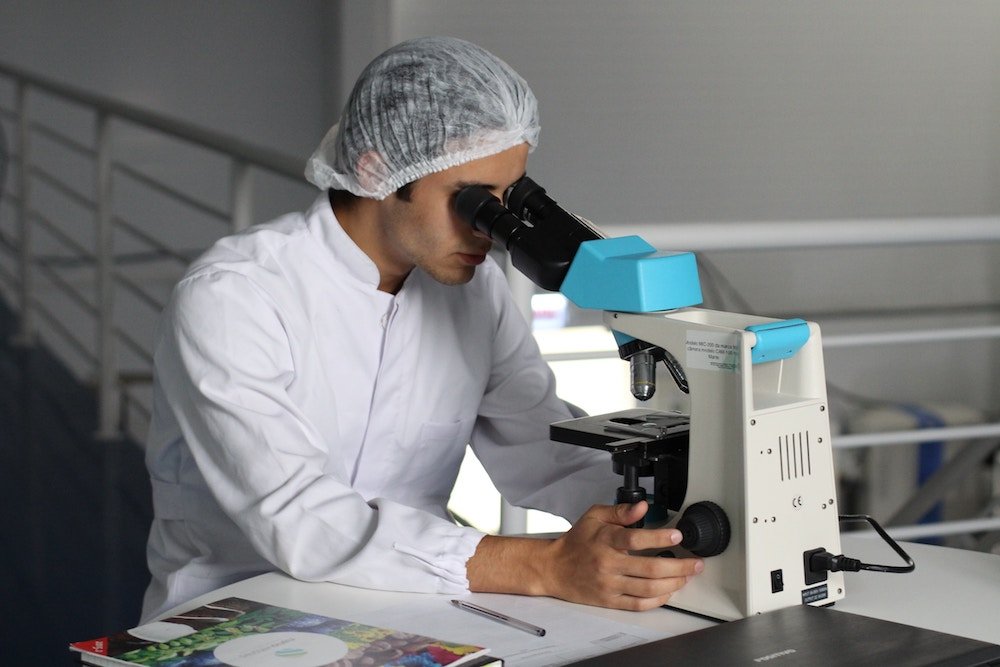“Is dementia inherited?” – This query delves into the genetics of dementia, raising important considerations about whether genes play a role in its transmission.
The majority of different types of dementia cannot be inherited by children and grandchildren. However, in some of the rarer types of dementia, scientists believe that there could be a strong genetic link. These are currently being researched.
Having said this, these cases are only a small number in the total cases of dementia. We look now at the different types of dementia asking the question is dementia inherited?
Is Dementia Inherited?

A little bit about genes…
The website dementia.org.au describes the role of genes in the human body:
The genetic material that we each inherit from our parents is packaged into structures called chromosomes.
We have 22 pairs of chromosomes plus two X chromosomes (women) or an X and Y chromosome (men).
Each chromosome contains thousands of genes like beads on a thread. Genes contain information – they are the blueprints for making a person.

Each gene has the instructions for making one tiny aspect of a person.
They are the basic units of heredity that allow specific characteristics (e.g. hair color, height, the tendency to develop diabetes in late life) to be passed from one generation to the next.
A mutation is a change in a gene. Some mutations are beneficial, but many are potentially harmful.
With regard to diseases, some genes are causative. E.g. if a person inherits a gene for a certain form of muscular dystrophy, they will certainly develop that illness in life.
Other genes are so called risk factor genes – they may not irrevocably lead to a person developing a certain illness such as diabetes, high blood pressure or Alzheimer’s disease. Some genes can make this more or less likely.
Source: Dementia.org.au
Alzheimer’s disease
According to Alzheimers.org.uk–
‘In the vast majority of cases (more than 99 in 100), Alzheimer’s disease is not inherited’.
The most important factor with Alzheimer’s is age. This is because the disease becomes more common in people who are in their late seventies and onwards.
If you have a grandparent with Alzheimer’s disease, this does not mean that you will be at any greater risk of developing it yourself.
- It has been proven that everyone can reduce the risk of developing Alzheimer’s by keeping your mind active, regularly exercising and eating a really healthy diet. It is also recommended that you drink moderate amounts of alcohol and cut out smoking.
Vascular dementia
 Is dementia inherited with Vascular dementia? Vascular dementia in itself is not inheritable. However, some of the underlying health problems that can contribute to this condition can be inherited. These include diabetes and high blood pressure.
Is dementia inherited with Vascular dementia? Vascular dementia in itself is not inheritable. However, some of the underlying health problems that can contribute to this condition can be inherited. These include diabetes and high blood pressure.
Research has shown that certain genes can increase the chances of developing vascular dementia. These genes can be passed from parent to child.
- Once again, a keyway to reduce the risk of developing vascular dementia is to embrace a healthy lifestyle with a good diet. Include plenty of leafy green vegetables along with plenty of regular exercise.
Frontotemporal dementia (also known as FTD or Pick’s disease)
This form of dementia is far less common than those listed above, but it is hereditary. This can cause great anxiety in families with a loved one with Frontotemporal dementia (FTD).
Although FTD is not always directly inherited, about one in ten people who develop FTD have at least one close relative with a form of dementia.
The relative could have, Alzheimer’s, FTD or motor neuron disease (amyotrophic lateral sclerosis, known as ALS).
Generally, if there is a relative with FTD or ALS, there is a greater chance of another family member developing what is known as ‘Familial FTD’ and most commonly, this is in its behavioral form rather than primary progressive aphasia type which is only inherited very rarely.
As there are a number of different genes that can cause familial FTD and each gene has a unique pattern of inheritance, it is best to seek the advice of a genetic specialist.
Is dementia inherited with Lewy bodies
Dementia with Lewy bodies (DLB) develops where there is an accumulation of abnormal proteins called ‘Lewy bodies’ in parts of the brain.
Currently, age is considered the greatest risk factor. Current research is being made to see if certain genes may also play a role.
Rare types of dementia that can be inherited
All of these types of dementia are very rare. However, if you are concerned that you or other family members could inherit a form of dementia, it is best to seek the advice of your family doctor and a referral to a genetic specialist.
Young-onset, familial Alzheimer’s disease
In a small number of Alzheimer’s cases, which the Canadian Health Institute puts at about 3%. This is the percentage of people aged 50-60 who can develop Alzheimer’s.
This is referred to as ‘Young Onset Alzheimer’s’ and is often caused by a faulty (mutated) gene inherited from their parents.
Very, very rarely, a person who is even younger, develops Alzheimer’s and this is nearly always caused by a faulty gene.
Huntingdon’s disease
 Huntington’s disease (HD) is inherited and causes nerve cells (known as neurons) in parts of the brain to gradually die.
Huntington’s disease (HD) is inherited and causes nerve cells (known as neurons) in parts of the brain to gradually die.
This disease attacks parts of the brain that help to control movement, as well as other areas. People with HD often develop uncontrollable movements and abnormal body positions.
The disease often affects behavior, cognitive skills and emotions. HD usually appears in middle-aged people. There is a 50% chance of HD being passed onto children if one parent has the faulty gene.
Familial Prion disease.
Approximately 10–15 percent of people with prion disease have a genetic form.
Genetic Creutzfeldt-Jakob disease (CJD) is a single gene disorder due to mutations in the prion gene (PRNP) on chromosome 20.
 Presently more than 20 alterations in the DNA sequence in the gene have been reported. The characteristics of the disease correlate with the different mutation types.
Presently more than 20 alterations in the DNA sequence in the gene have been reported. The characteristics of the disease correlate with the different mutation types.
Several other changes in the PRNP gene (called polymorphisms) do not cause prion diseases directly but may affect a person’s risk of developing these diseases or alter the course of the disease.
Genetic prion disease follows an autosomal dominant inheritance pattern. This means that if you carry a prion-disease-causing mutation, each of your children has a 50 percent (1 in 2) chance to inherit the same mutation.
Source: Memory.ucsf.edu
Final thoughts – Is Dementia Inherited?
When discussing – “is dementia inherited”, in the vast majority of cases it is not, but in the types that can be caused by a faulty gene there is a greater risk – especially as the faulty gene is always the dominant gene.
If you have concerns about anything you have read in this article, it is best to seek the advice of your family doctor.

![Is Dementia Inherited? [Know the Facts] Is dementia Inherited discussed](https://readementia.com/wp-content/uploads/2024/02/Is-dementia-Inherited-discussed-720x300.jpg)





